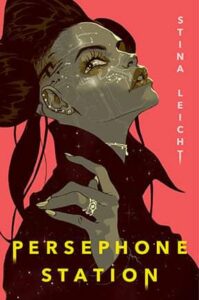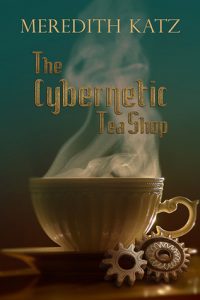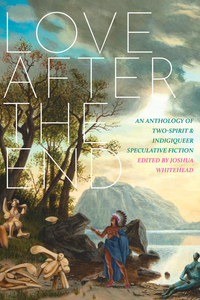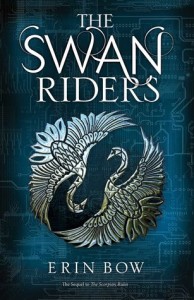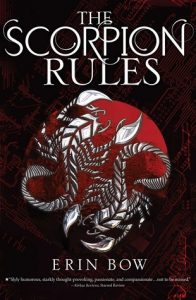Amazon Affiliate Link | Bookshop.org Affiliate Link
Persephone Station is a space romp with everything you could ask: crime bosses, alien life, assassinations at fancy parties, rogue AI, and fancy flying. There’s a ton packed into this book, and even when you think you’ve reached your limit, it turns out that there’s more just around the corner. If a bunch of queer ex army women getting into and out of trouble in space is your jam, then this book might be for you. However, if you’re looking for serious scifi that has a strong, unique perspective on society, then it might not. Like the source material, this review is going to be long, so buckle up.
First of all, the things I loved about this book. There was a ton of snappy dialogue, plenty of tense action, and mysteries abound as the broad cast of characters slowly came together. The aesthetics of the book come together in a very tangible way, and Leicht clearly had a strong vision as she wrote. She also has strong characters with a great team dynamic, everyone with their own specialty and voice. Her world is meticulously built, and while most of the action is on Persephone, we get a galactic tour of other planets through various backstories and outside cultural influences.
There were, however, several aspects of the book which fell a little flat for me. One was pacing: it felt like we were going through cycles of quick scenes filled with action and snappy one liners, and then into long exposition dumps. There were a LOT of these, and they delivered most of the world building. It was a bit of a shame, because some aspects of it were really cool! But it’s hard not to space out when I’m just reading a list of detailed personal histories for the main girl gang, or an intricate explanation of alien biology (that honestly raised more questions than it answered, but typing them all out made this review unreadable). I also felt like, despite all the world building that we had, most of the book felt like it could have easily translated to a contemporary action flick with just a few scifi elements. The beginning of the book in particular is loaded with English based pop culture references, that are often pointed at and explained to be references so that there’s no way the audience could miss them. Most of the book I was questioning why this was even set in space, when it could have easily been set in Los Angeles or Chicago and very little would change. There aren’t any aliens living outside of major US cities, of course, but it was a little frustrating to feel like the setting was more of an aesthetic choice than something that’s actually important to the story.
And, since I am writing this review for the Lesbrary: what about the gays? Leicht doesn’t shy away from including a rainbow of people in her book, with lots of non binary characters, casual mentions to same sex relationships, and a lack of major male characters in general. That being said, this was…not as gay as I expected? This was mostly fine, because it’s a very action focused book. There is no major romance, no big relationship drama, and that was actually really nice. Friendship and family is more important to the story, and I loved that.
There was one thing that struck me as odd though: multiple times in the book, whoever had the POV for the chapter met a group of new people, “2 men, 4 women, and 3 nonbinary individuals”. I was really confused as to how someone would look at a group of people and be able to discern who identified as what. It couldn’t be clothing choice, because there is a non binary main character whose clothes are very femme, more so than some of the cis women. So how would they know the gender of everyone in a crowd? It felt like a well intentioned attempt at inclusiveness but it yanked me out of the story every time, when “a group of people” would be inclusive without being so awkward.
Overall, the book was fun. I would have loved it as a movie or show, which felt like the medium the author wanted as well—her attention to detail with hairstyles, outfits, and appearances really contributed to the powerful visuals in this novel. As a book, however, I was glad to be listening to it rather than reading it, because the info dumps and pacing would have dragged me down a lot. One final thing that I really, really appreciated: this book doesn’t shy away from characters over 30. It’s a huge pet peeve of mine when books have ex soldiers and pilots and crime bosses who are all like 18-26. This was NOT a problem in this book, and I do recommend it to anyone who wants a fun queer action flick with emphasis on the action.

